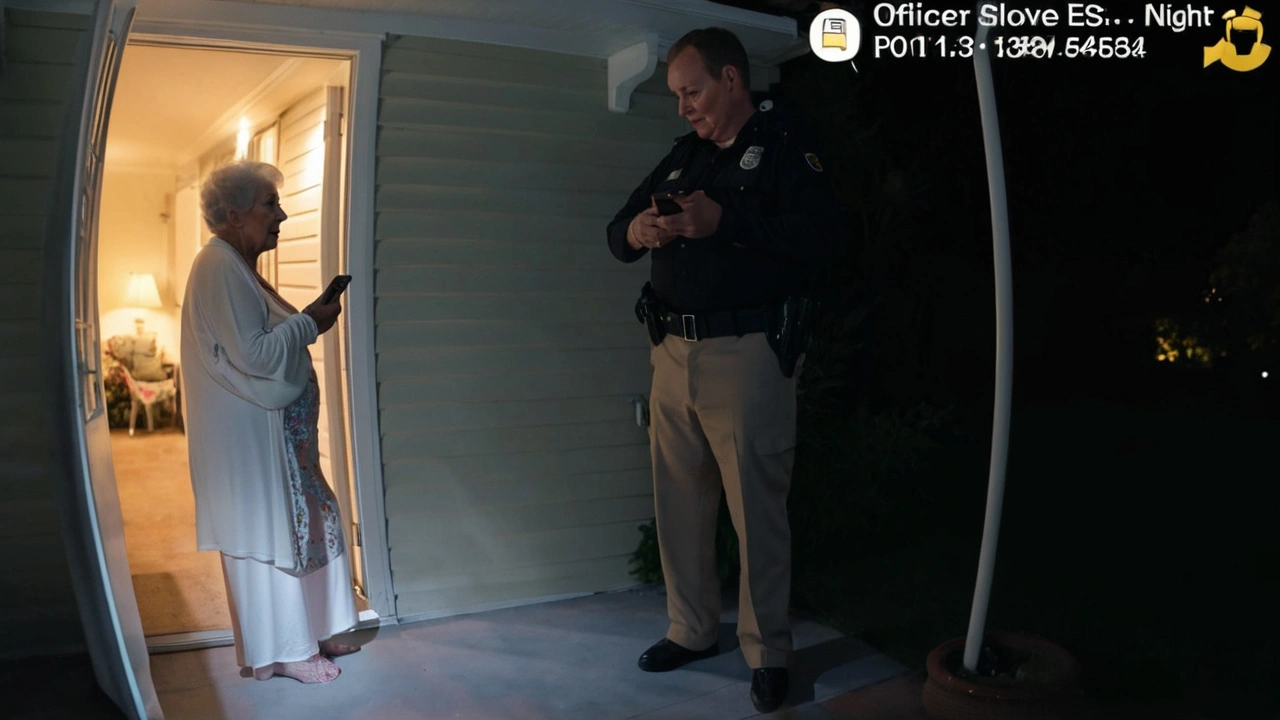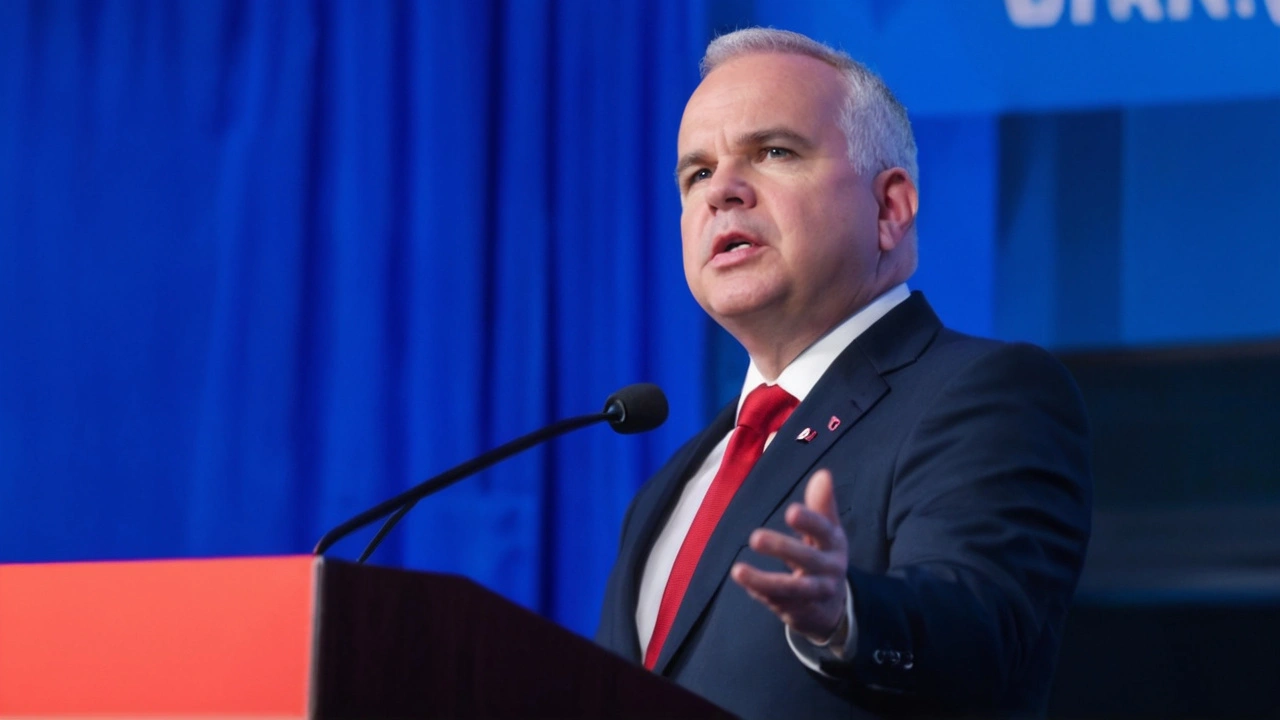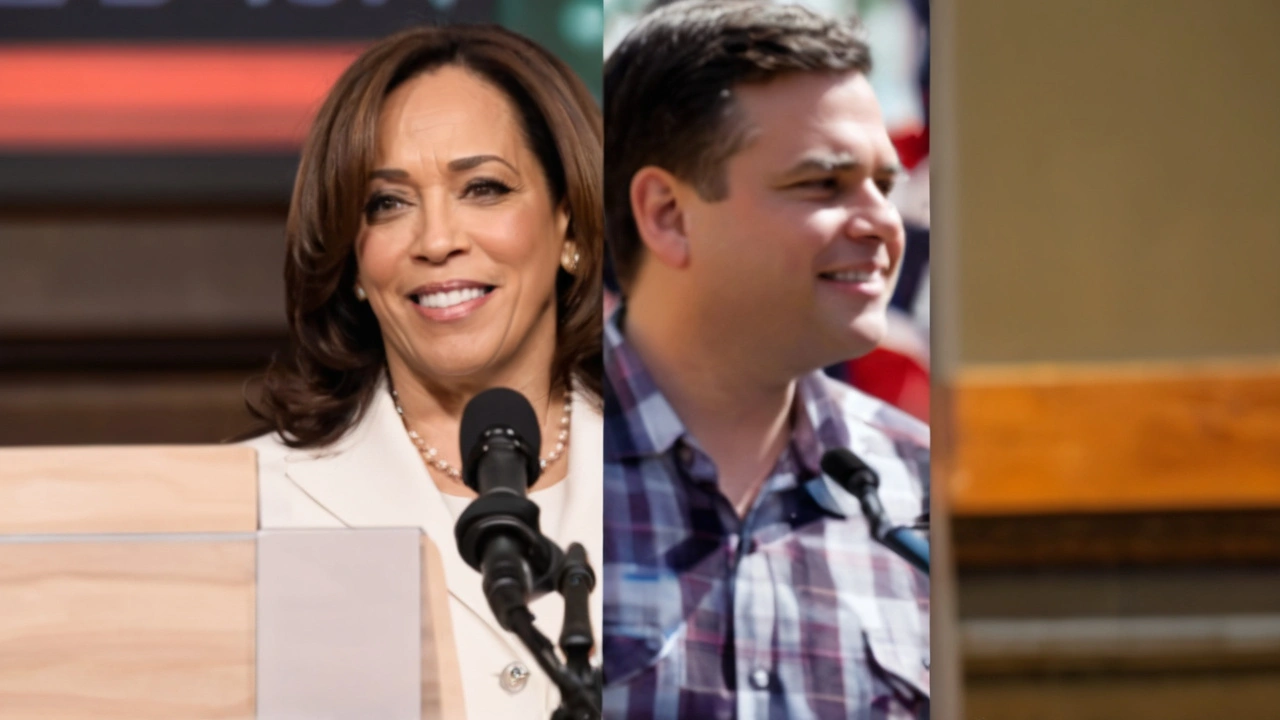In a tragic turn of events early this July, the life of Sonya Massey, a 36-year-old Black woman from Springfield, Illinois, was cut short after a violent encounter with law enforcement. The incident, which has drawn national condemnation, began with a simple call to 911. Massey’s call for help ended catastrophically as she became yet another casualty in the ongoing struggles between the Black community and law enforcement in America.
Sonya Massey's Last Call for Help
It was a seemingly ordinary night on July 6, 2024, when Sonya Massey dialed 911 to report a suspected intruder. Expecting assistance, Massey was instead met with aggression from responding law enforcement officers. Among them was former Sangamon County Deputy Sean Grayson. At just 30 years old and with over four years of experience in law enforcement, Grayson has since found himself at the center of this tragic narrative.
The confrontation escalated when the officers arrived at Massey's property. Body camera footage, a crucial element in this unfolding case, shows Grayson and another deputy inspecting the premises. They noticed a vehicle outside with a shattered window, which heightened their suspicions. Inside the home, Massey was cooperative, allowing the officers in and attempting to comply with their commands.
Moments Leading Up to the Tragedy
The footage recorded by the Illinois State Police body cameras revealed the crucial moments leading up to the fatal shooting. As the officers entered, Massey was instructed to turn off her stove. She moved towards a pot of boiling water to comply, but Grayson’s reaction was disproportionate. Threatening her during what should have been a routine procedure, he escalated the situation, leading to the tragic shooting that ended Massey's life. In those last, harrowing moments, the very institution meant to protect her became the source of her demise.
Immediate and National Responses
Following the shooting, the reaction from the community and the nation was swift and intense. The Sangamon County Sheriff’s Office took immediate action by terminating Grayson's employment. Their statement highlighted that Grayson’s actions did not align with the department's training or standards. Despite his termination, the repercussions of his actions continued to unravel as he faced the judicial system.
Grayson was charged with three counts of first-degree murder, as well as counts of official misconduct and aggravated battery with a firearm. He pleaded not guilty, setting the stage for a potentially contentious trial. The charges against him underscore the severity of the incident and reflect a broader national outcry for justice in cases of police misconduct.
Leadership Speaks Out
In the immediate aftermath, Vice President Kamala Harris and President Joe Biden both spoke out against the incident, condemning it as a 'senseless murder'. Harris, a long-time advocate for justice and police reform, stated emphatically that Massey 'deserved to be safe'. Her words reflect a deep-seated frustration with the recurring narratives of police violence and the impact on communities of color.
President Biden also addressed the nation, urging lawmakers to pass the George Floyd Justice in Policing Act. This legislative effort aims to create significant changes in policing standards and accountability, reflecting a growing movement for reform in the wake of high-profile police-involved deaths. The bill signifies a potential pivot towards more transparent and equitable policing practices designed to prevent tragedies like Massey's.
A Community and State in Mourning
The impact of Massey's death resonated throughout Springfield and beyond. Illinois Governor J.B. Pritzker echoed the sentiments of many when he stated that Massey deserved protection from the very people who took her life. His comments were a stark reminder of the delicate balance between law enforcement and the communities they serve.
Massey’s death has forged a communal bond, bringing together voices from all walks of life in a collective demand for justice. Vigils, protests, and community meetings have become outlets for expressing grief and pushing for meaningful change. The emotional toll of the incident is palpable, with many advocating for systemic improvements to prevent further loss of life.
A Call for Change
As the nation grapples with another high-profile case of police violence, the call for accountability and reform grows louder. The tragic death of Sonya Massey highlights the urgent need for changes within law enforcement agencies across the country. Public demand for transparency, accountability, and better training protocols has reached a fever pitch.
To many, Massey's death represents more than a single incident; it embodies the pervasive issue of systemic racism and the dangers faced by Black individuals at the hands of those sworn to protect them. As this story continues to develop, the hope is that meaningful legislative changes, such as the George Floyd Justice in Policing Act, will bring about the necessary reforms to ensure safety and justice for all citizens.

A Complex History, a Hopeful Future
While the road to reform is undoubtedly challenging, the widespread outcry following Massey's death suggests that significant changes might be on the horizon. The national focus on this case has amplified voices calling for justice and has placed immense pressure on policymakers to act.
The tragic loss of Sonya Massey serves as a painful reminder of the work still needed to bridge the gap between communities of color and law enforcement. As the legal processes unfold, all eyes will remain on Springfield and the broader national dialogue around police reform. With leaders like Kamala Harris and Joe Biden advocating for change, there is a glimmer of hope that meaningful progress will be made, honoring Massey's memory and providing a safer future for all.









sahil jain
July 25, 2024 AT 00:05 AMSeeing so many voices rally for Sonya's family is uplifting – it shows that change is possible when we all stand together. The momentum is real, and every share adds pressure for accountability. 😊
Bruce Moncrieff
July 25, 2024 AT 01:29 AMMan this case hits hard it’s like another scar on a broken system we can’t keep ignoring the bloodshed keeps piling up and the cries for reform echo louder each day
Dee Boyd
July 25, 2024 AT 02:52 AMThe systemic rupture observed in the Massey incident epitomizes entrenched institutional bias; the procedural malfeasance displayed contravenes constitutional safeguards. Ethical jurisprudence demands immediate rectification via statutory overhaul. Failure to operationalize transparent oversight mechanisms corrodes public trust irrevocably.
Carol Wild
July 25, 2024 AT 04:15 AMIt is profoundly unsettling how a supposedly civilized democracy permits such flagrant disregard for human life, particularly when the victim is a Black woman whose only crime was seeking protection. The narrative being spun by official channels reeks of a calculated attempt to obfuscate the undeniable reality: a lethal overreach rooted in deep‑seated racism. One cannot help but notice the convenient timing of the deputy’s termination, a superficial gesture designed to placate public outrage while the underlying machinery continues to function unimpeded. The legal community must ask itself whether the current framework of accountability is merely a façade, an elaborate performance meant to reassure a weary populace. Moreover, the swift charging of the officer with first‑degree murder, though seemingly decisive, may serve only as a tokenistic concession, a way to claim progress without addressing the systemic flaws that enable such tragedies. History is replete with examples where isolated prosecutions have done nothing to dismantle the structural underpinnings of police violence; this case risks becoming another chapter in that disheartening saga. The involvement of high‑profile political figures, while symbolically significant, could be construed as an attempt to leverage the incident for partisan gain, diverting attention from the necessary grassroots reforms. It is crucial to scrutinize the language employed by officials: terms like "senseless murder" carry emotional weight, yet they do little to compel legislative action beyond rhetorical posturing. The proposed George Floyd Justice in Policing Act, despite its ambitious provisions, remains entangled in a labyrinth of political compromise that may dilute its effectiveness. In the meantime, the community of Springfield is left to navigate a landscape of grief, anger, and distrust, all while the mechanisms of justice inch forward at an agonizingly slow pace. One must also consider the role of media coverage, which often oscillates between sensationalism and muted indifference, thereby shaping public perception in unpredictable ways. The balance between drawing national attention to the case and allowing local voices to lead the discourse is delicate, yet essential for authentic change. As we reflect on Sonya Massey’s tragic death, we are compelled to confront uncomfortable truths about the value placed on Black lives in America. The path forward demands more than isolated indictments; it calls for a comprehensive reevaluation of policing doctrines, training methodologies, and community engagement strategies. Only through sustained, collective effort can we hope to transform the rhetoric of reform into concrete, lasting justice.
Rahul Sharma
July 25, 2024 AT 05:39 AMLet me be crystal clear, this is an absolute affront to civil liberty, and it must be addressed immediately, with decisive policy changes, comprehensive retraining, and transparent oversight mechanisms, otherwise the cycle of violence will continue unabated! The community’s outcry is not a fleeting trend, it is a demanded restructuring of the entire paradigm of law enforcement, and we cannot afford complacency.
Emily Kadanec
July 25, 2024 AT 07:02 AMYo, i think people are forgettin that these kind of incidents have been happening for ages, and the system just keep on ignoring the real problems. its not just about one bad cop, its about the whole system that fail to protect us.
william wijaya
July 25, 2024 AT 08:25 AMWhen you look at the body‑camera footage, the lack of de‑escalation protocols is glaring, and it underscores a broader failure in crisis intervention training. The emotional trauma inflicted on the family goes beyond the physical act; it reverberates through the community's collective psyche. If we are to rebuild trust, we need evidence‑based reforms that prioritize de‑escalation and cultural competency.
Lemuel Belleza
July 25, 2024 AT 09:49 AMHonestly, the media is just doing its usual sensationalist thing, turning tragedy into clickbait. It's easy to point fingers without offering any real solutions.
faye ambit
July 25, 2024 AT 11:12 AMReflecting on this sorrowful event reminds us that justice is a collective responsibility; our solidarity must translate into lasting structural change.
Subhash Choudhary
July 25, 2024 AT 12:35 PMBro, this is just messed up, can't believe this still happens.
Ethan Smith
July 25, 2024 AT 13:59 PMWhile the emotional response is understandable, it is essential that any reform measures be crafted with precision to avoid unintended consequences. Constructive dialogue between stakeholders will be key.
Evelyn Monroig
July 25, 2024 AT 15:22 PMThe whole thing is a staged distraction orchestrated by shadowy forces to keep the populace divided. They want us to argue over semantics while the deep state continues its agenda unchecked.
Gerald Hornsby
July 25, 2024 AT 16:45 PMJustice delayed is still justice 🌟